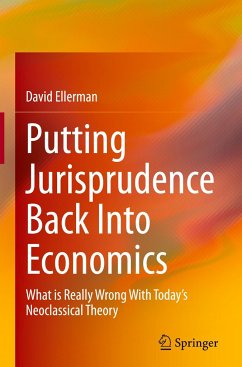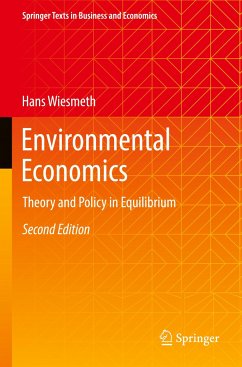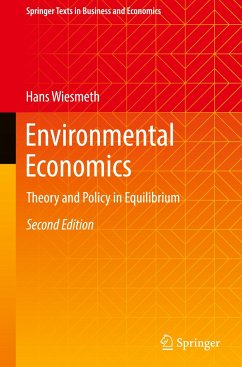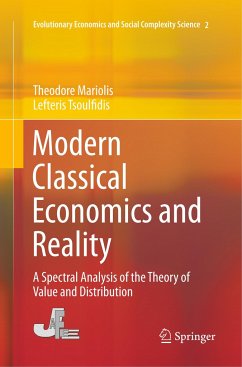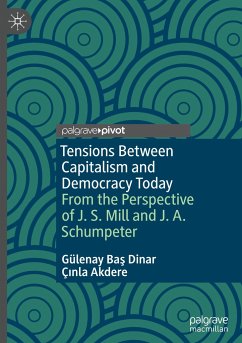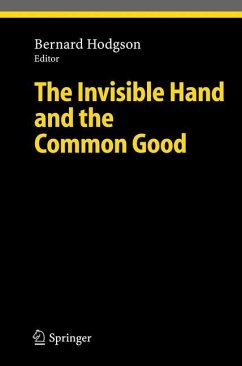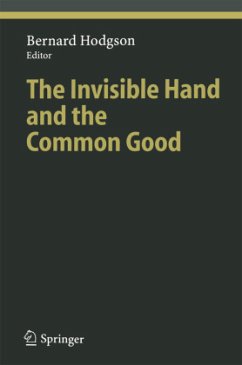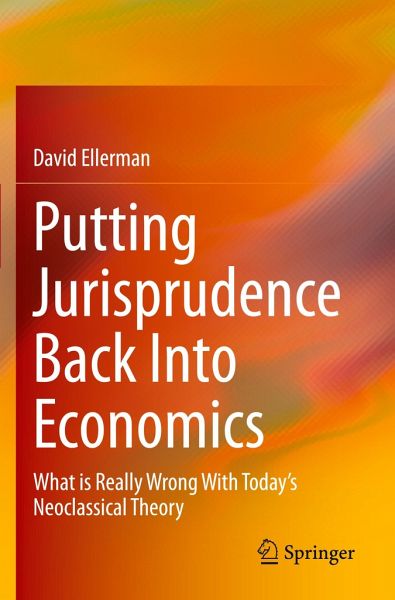
Putting Jurisprudence Back Into Economics
What is Really Wrong With Today's Neoclassical Theory
Versandkostenfrei!
Versandfertig in 6-10 Tagen
76,99 €
inkl. MwSt.
Weitere Ausgaben:

PAYBACK Punkte
38 °P sammeln!
This book presents an integrated jurisprudential critique of neoclassical microeconomic theory. It explains what is 'really wrong' with the theory both descriptively, as well as normatively. The criticism presented is based on questions of jurisprudence, and on neoclassical theory's sins of omission and commission concerning the underlying system of property and contract. On the positive side - while the presentation is almost entirely non-mathematical - the book contains the first mathematical treatment of the fundamental theorem about property and contract in jurisprudence that underlies a m...
This book presents an integrated jurisprudential critique of neoclassical microeconomic theory. It explains what is 'really wrong' with the theory both descriptively, as well as normatively. The criticism presented is based on questions of jurisprudence, and on neoclassical theory's sins of omission and commission concerning the underlying system of property and contract. On the positive side - while the presentation is almost entirely non-mathematical - the book contains the first mathematical treatment of the fundamental theorem about property and contract in jurisprudence that underlies a market economy.
The book follows the tradition of John Stuart Mill as the last major political economist who considered the study of property rights as an integral part of economic theory. The conceptual criticisms presented in this book focus on the descriptive and normative misconceptions about property and contracts that are deeply embedded ideology in neoclassical economics, not to mention in the broader society. The book recognizes that the idealized microeconomic theory is not descriptive of reality and focuses its criticism on conceptual mistakes in the theory, which are even clearer due to the idealized nature of the theory.
Therefore, the book is a must-read for scholars, researchers, and students interested in a better understanding of jurisprudence in economics, neoclassical microeconomic theory, and political economy in general.
The book follows the tradition of John Stuart Mill as the last major political economist who considered the study of property rights as an integral part of economic theory. The conceptual criticisms presented in this book focus on the descriptive and normative misconceptions about property and contracts that are deeply embedded ideology in neoclassical economics, not to mention in the broader society. The book recognizes that the idealized microeconomic theory is not descriptive of reality and focuses its criticism on conceptual mistakes in the theory, which are even clearer due to the idealized nature of the theory.
Therefore, the book is a must-read for scholars, researchers, and students interested in a better understanding of jurisprudence in economics, neoclassical microeconomic theory, and political economy in general.





